What food should rugby players eat?
Rugby is a sport for many different shapes, sizes, qualities, skill sets and mindsets. Made up of 15 positions on the field, body shapes and compositions are vastly different. The nutritional requirements required for each position are also varied.
Healthy eating can make a big difference to your performance short term and long term. However, there are certain foods all rugby players can incorporate into their diet.
The health benefits of the foods below are universal no matter your body type and position on the field and your typical rugby player will benefit from them.
We’ve included some meal suggestions, some key ingredients and nutrients to think about, as part of a balanced diet.
Consider each of them in your pre-and-post match nutrition strategy to ensure you're playing at an optimal level every time you hit the rugby pitch.

What is the best thing to eat before a rugby match?
1) Steak and eggs
Time to ditch the sugary cereals in the morning. Red meat and eggs are much better sources of energy first thing than a sugar-rich cereal product.
Sugar distributes its energy sources much less evenly than protein and fats (think of the instant high and subsequent lows of eating sugary sweets). This results in energy spikes and troughs throughout the day.
High-quality protein and good fats are much better at utilising energy sources. The body is able to maintain a high level of energy throughout the day.
Aside from energy, a breakfast of steak and eggs brings all the benefits to recovery and performance you'll need to optimise your game. Red meats and eggs are some of the finest sources of protein and fats you can get your hands on.
If you’re frying your food, opt for a minimally processed cooking fat like beef tallow or olive oil, instead of refined vegetable oils like rapeseed or sunflower.
Cook yourself some steak and eggs in the morning and help muscle growth and repair, great for sustaining lean body mass.
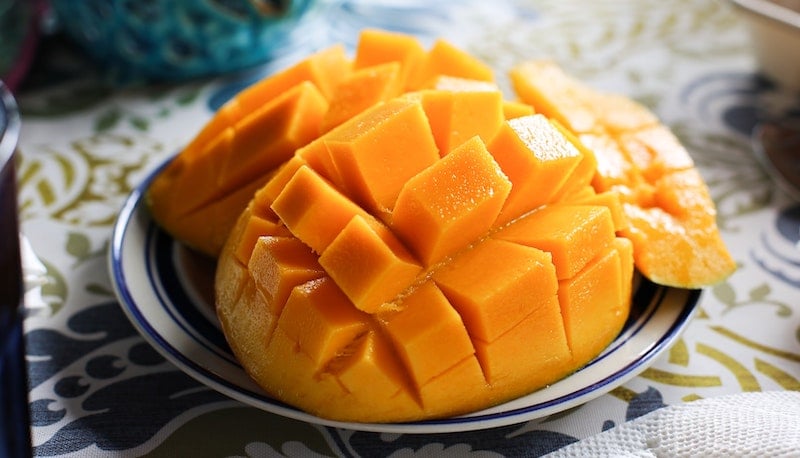
2) Sticky rice with mango
Pre-match preparation starts the night before the big day; so it's important to choose wisely when selecting your pre-game meal.
When you are out on the field, your body needs to dip into different energy sources to perform on a consistent basis. Due to the length of a rugby match, you will mostly be in an aerobic state, using glycogen as your main energy source.
So, your priority should be a meal with plenty of glycogen, ensuring you have enough energy in the tank to last the whole 80 minutes.
One example is a meal of sticky rice with mango chopped into it. As well as the great taste, it also offers everything you are looking for in a meal the night prior to match day.
Brown rice is more nutritious than white rice because it contains more fibre, nutrients and antioxidants.
The rice brings carbohydrates, whilst mango is crammed full of antioxidants such as Vitamin A and C – which are vital to overall good health.
This is a great option before a match or a big session, but for a rest day, it would be better to go for something lower in carbohydrates and higher in protein.
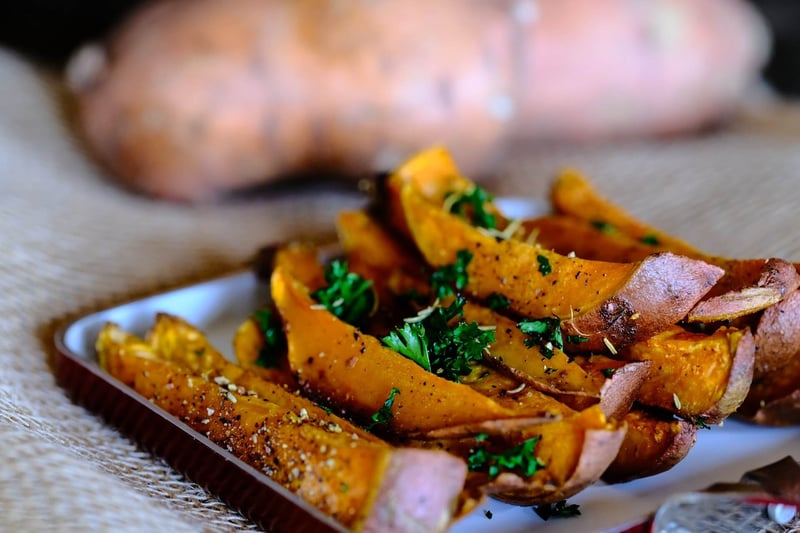
What should a rugby player eat after a match?
3) Sweet Potato with a maple syrup glaze
Often, sports people’s blood sugar level can drop dramatically after matches due to the loss of nutrients through sweat.
The glucose levels of your blood are important to your long term health, so after a match you're looking to replenish the glucose that has been lost during the game.
To reverse this and top up your glucose levels, you'll need a carbohydrate-fuelled meal. Top of the list should be sweet potato glazed in maple syrup.
It's an amazing way to replenish your body, and also a good source of Vitamin C – a nutrient that boosts your immune system and wards off colds and flus, helping you stay fit and firing more often.
4) Liver
With a strong flavour and interesting texture, liver doesn’t have the best reputation. Nevertheless, it is one of the most nutrient-rich foods in the world with some great health benefits.
A 100g serving of liver contains around 26g of protein, making it ideal food for after exercise to aid muscle recovery.
Chicken livers are one of the few remaining really cheap meats. If you can’t stomach the idea of eating liver, why not try chopping some up and adding to a bolognese sauce, replacing some of the beef mince?
Liver is high in vitamin A which is important for healthy skin, hair and nails. It also contains lots of vitamin B12, something not found in any plant foods, and which helps your body use iron.
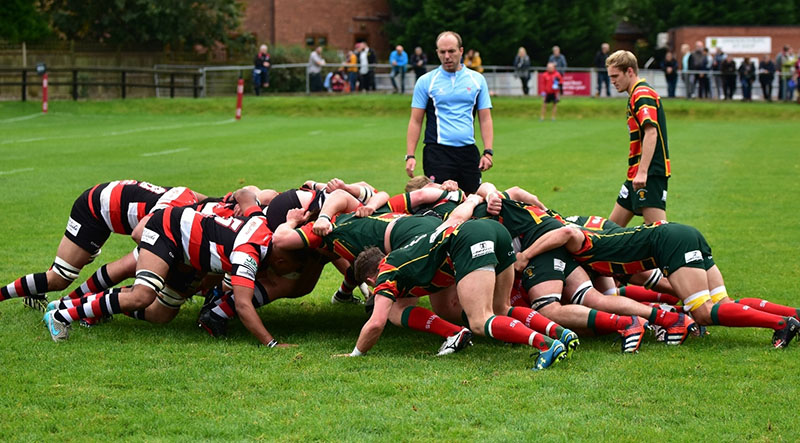
What snacks do rugby players eat?
5) Chia seeds
For a foodstuff that's packed full of good nutrients yet comes in such a small size, look out for chia seeds.
They're crammed full of stuff you need for recovering from sporting activity, and can help you perform at your best game-in-game-out. Chia seeds are high in Omega 3 (more on that later), fibre and calcium, and contain more protein than other seeds.
All of this adds up to one epic superfood. These little gems are an excellent guilt-free snack – or you could add them to yoghurt for a nutrient-rich breakfast.
6) Apple and peanut butter
Apples are a good source of vitamin C and fibre. They contain a variety of strong antioxidants that may help slow the growth of cancer cells. Too many apples may hinder you as they do contain a lot of carbohydrates, mostly in the form of sugar, but as an occasional energy-boosting snack, they work extremely well.
Peanut butter is a spread made from dry roasted peanuts, and you should go for one that has been processed as little as possible with no added ingredients apart from the peanuts and a little salt for flavour.
Peanut butter is very low in carbohydrates and sugar, but contains lots of fat and some protein, making it an ideal partner to the apple. Peanuts contain antioxidants like manganese, vitamin E and some B vitamins, helping to reduce the risk of cancer.
For a rugby player needing a big energy boost that is healthy as well, this is a great shout.
.jpg?width=800&name=blog-fish-omega-3%20(1).jpg)
Essential nutrients and where to find them
7) Omega 3
Omega 3 has a whole host of excellent benefits - meaning you can't pass up the opportunity to get stuck into as much of it as you can.
Among them is greater cardiovascular health. As a rugby player running up and down the pitch, good cardio is vital. Fatty acids found in omega 3 are linked to a healthy cardiovascular system, helping you perform better for longer.
Elsewhere, Omega 3's antioxidant boosts your defences against illness, as well as improving joint and bone health.
In food, you'll find Omega 3 in oily fish like salmon and mackerel, oysters and chia seeds.
Alternatively, you could take 6g of Omega 3 per day with 3 different meals, spreading it out with 2g per meal.
However, it is important to note that supplements are not absorbed particularly well by the body and they should never replace real food.
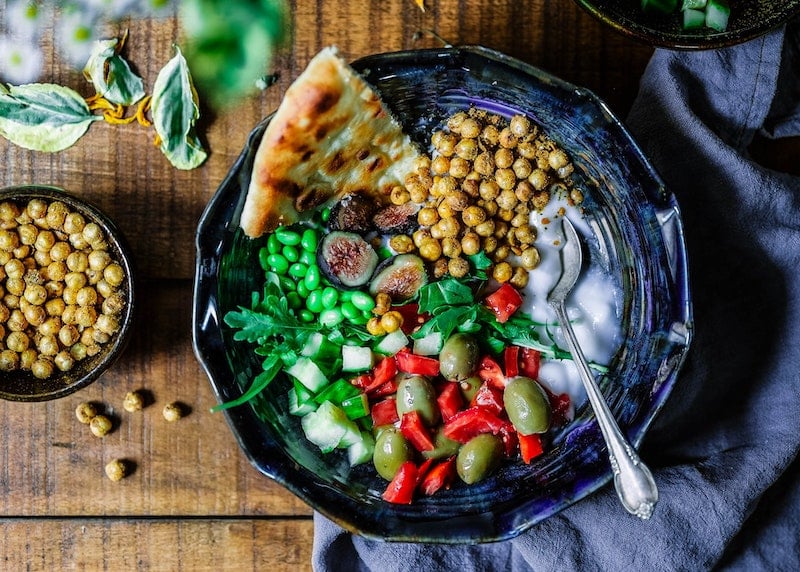
8) Zinc
High levels of testosterone are vital to outstanding sports performance. Linked to higher energy levels, better concentration and an increase in muscle mass, it's vital you get as much surging through your body as possible in the build-up to a big game.
One natural way you can do that is via zinc. Zinc is one of the most effective ways of balancing hormones through increased testosterone levels, and comes with a series of other benefits alongside.
A powerful ally in the fight against the common cold, it can reduce your chance of getting ill or help you recover if you do catch a sniffle.
In foods, red meat should be your first zinc-boosting port of call. Otherwise, poultry, shellfish and legumes like chickpeas and lentils are all rich in zinc. If you can only get zinc through a supplement, take 30mg per day.
9) Creatine monohydrate
Particularly powerful to players who are looking to increase their strength through muscle mass gains, creatine monohydrate is one of the most popular nutrients for sport and fitness fanatics.
Scientifically proven to increase muscle mass and endurance (when partnered with the right physical training, some of the heftier members of your team probably have it in their diet already).
In foods, wild game such as venison is your best bet, but chicken, turkey, lamb and veal are all other natural alternatives.
As a supplement, take 0.2g per kg of body weight for 5-7 days and then 0.02g per kg bodyweight thereafter.
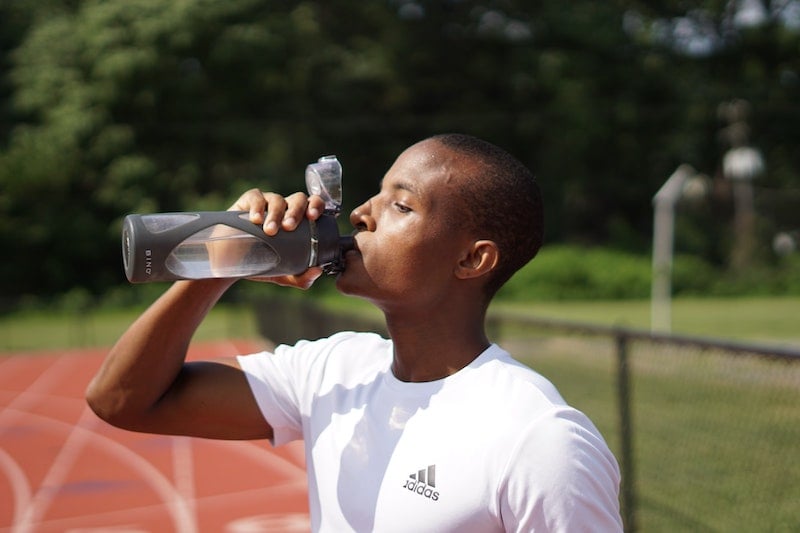
10) Water
As far as potential pitfalls to performance are concerned, dehydration is right up with the biggest and baddest.
A dehydrated body leads to mental deterioration, dips in energy levels and muscle cramps – a three-stage process that will damage your output on the field.
There is only one true way to prevent this, and that's through the power of water. For those undergoing daily intense sporting activity, drinking 3 litres of water per day is roughly the correct figure to ensure your body and mind don't become dehydrated during training or match days.
For some rugby players that may be a little heavy.
Forwards are generally better able to consume large amounts of liquid than backs (you've probably witnessed this during the post-match pub trip), so find a level that suits you and your physical requirements on the pitch.
Good luck with your own nutrition efforts if you play sport and if you're interested in learning more, we have a blog on a plant-based diet and impact on performance.
